The Next Frontier: How Emerging Technologies Will Transform Gaming By 2034 🎮
 Daniel Parente
Daniel ParenteTable of contents
- The Gaming Revolution Has Begun
- AI Takes Gaming to New Heights 🤖
- Cloud Gaming Breaks Down Barriers
- Immersive Tech Creates New Realities
- Blockchain Enables True Digital Ownership
- Cross-Platform Play Unites Gaming Communities
- Looking Ahead: Gaming’s Bright Future ⭐
- The Technical Revolution Behind The Scenes
- Generative AI Reshapes Development
- Sustainable Gaming Takes Center Stage 🌱
- Impact on Gaming Communities
- Social Gaming Evolution
- Accessibility Drives Innovation
- Economic Implications
- New Revenue Models Emerge
- Career Opportunities Expand
- Challenges and Considerations
- Privacy and Security
- Digital Well-being
- Educational Gaming Frontiers
- Gamified Learning
- The Road Ahead
- Emerging Possibilities
- Industry Adaptation
- Related Videos
- Conclusion: Gaming’s Transformative Decade 🚀

The Gaming Revolution Has Begun
Gaming stands at a technological crossroads. Revolutionary advances in artificial intelligence, cloud computing and immersive technologies promise to fundamentally transform how we create, distribute and experience games over the next decade.
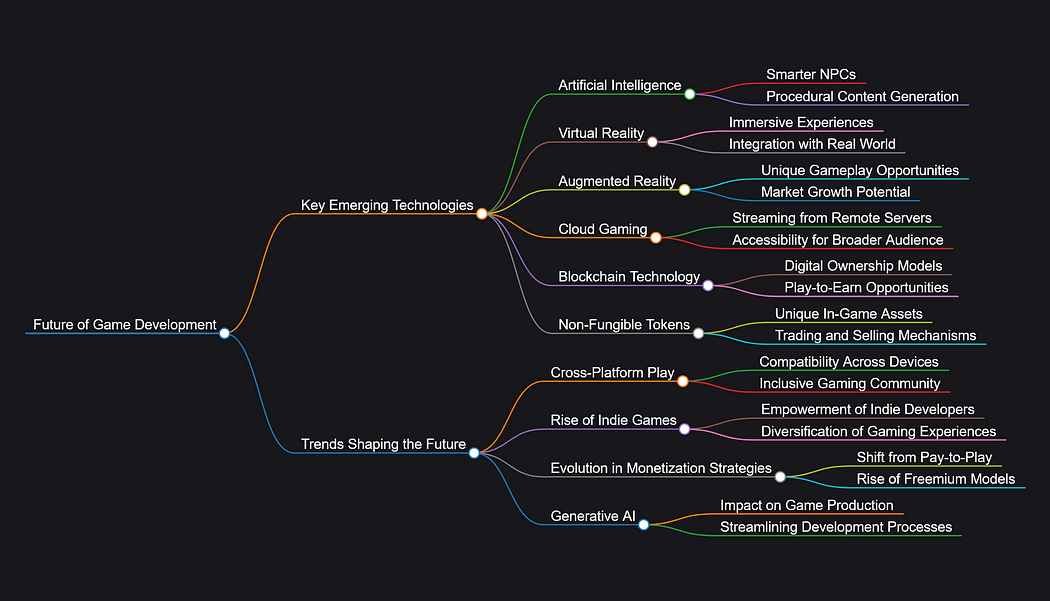
Key Takeaways:
AI and machine learning will create adaptive, personalized gaming experiences
Cloud gaming democratizes access by removing hardware barriers
Immersive technologies like VR/AR push gaming into new experiential frontiers
Blockchain enables true digital ownership and new economic models
Cross-platform development expands gaming accessibility
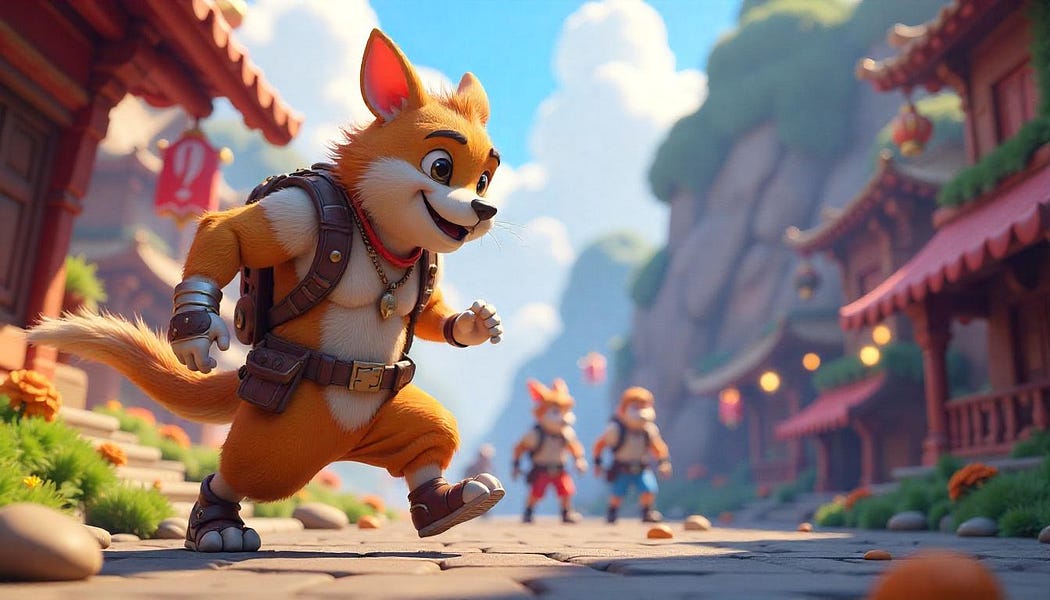
AI Takes Gaming to New Heights 🤖
Artificial intelligence already powers many aspects of modern games but its potential remains largely untapped. Next-generation AI will enable incredibly lifelike non-player characters that learn and adapt to each player’s style. Games like The Last of Us Part II showcase early examples of AI-driven character behavior and emotional resonance.
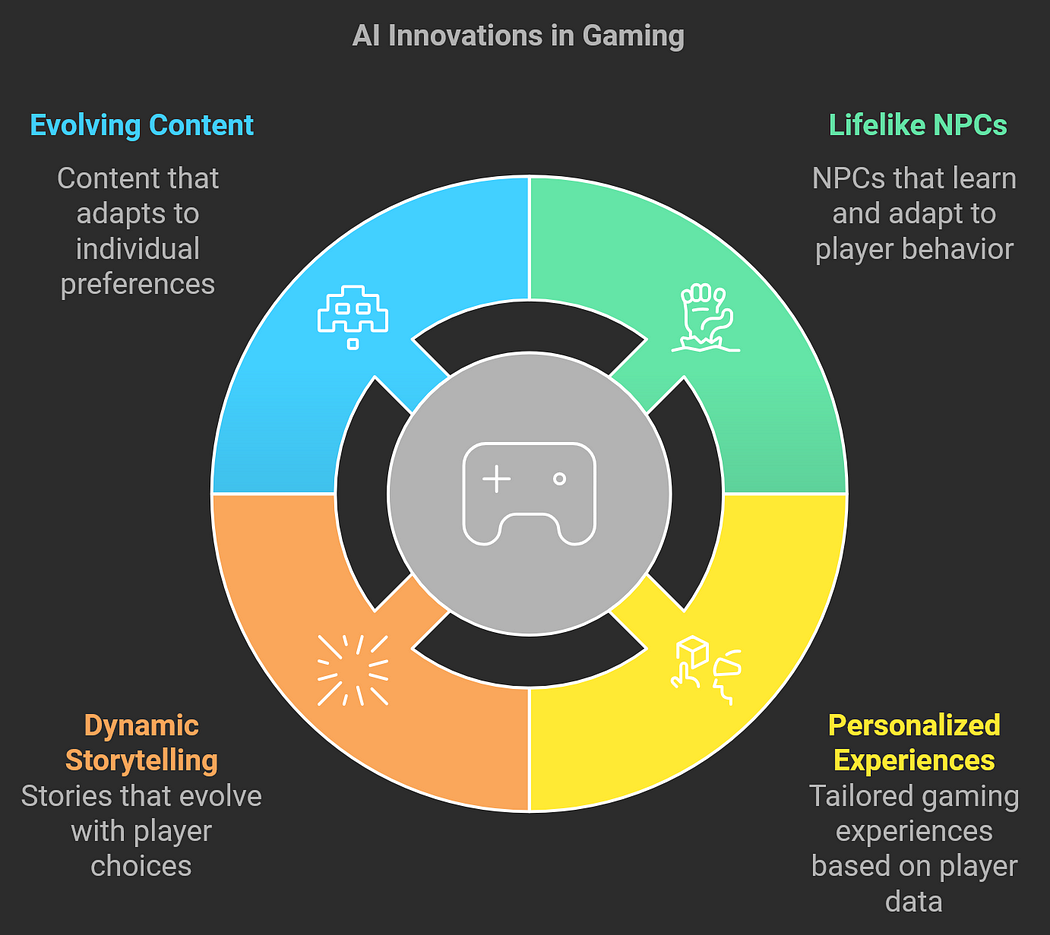
Machine learning algorithms analyze vast amounts of player data to deliver personalized experiences. Difficulty levels adjust automatically. Story elements shift based on choices. Even procedurally generated content evolves to match individual preferences.

Cloud Gaming Breaks Down Barriers
Cloud gaming services have started dismantling traditional hardware requirements. Players stream high-end titles directly to phones, tablets and basic laptops. Microsoft’s xCloud and Google Stadia led early adoption though the technology continues maturing.
As 5G networks expand globally cloud gaming will reach new audiences. Casual players gain access to AAA experiences. Hardcore gamers enjoy instant access to massive libraries. The democratization of gaming accelerates.
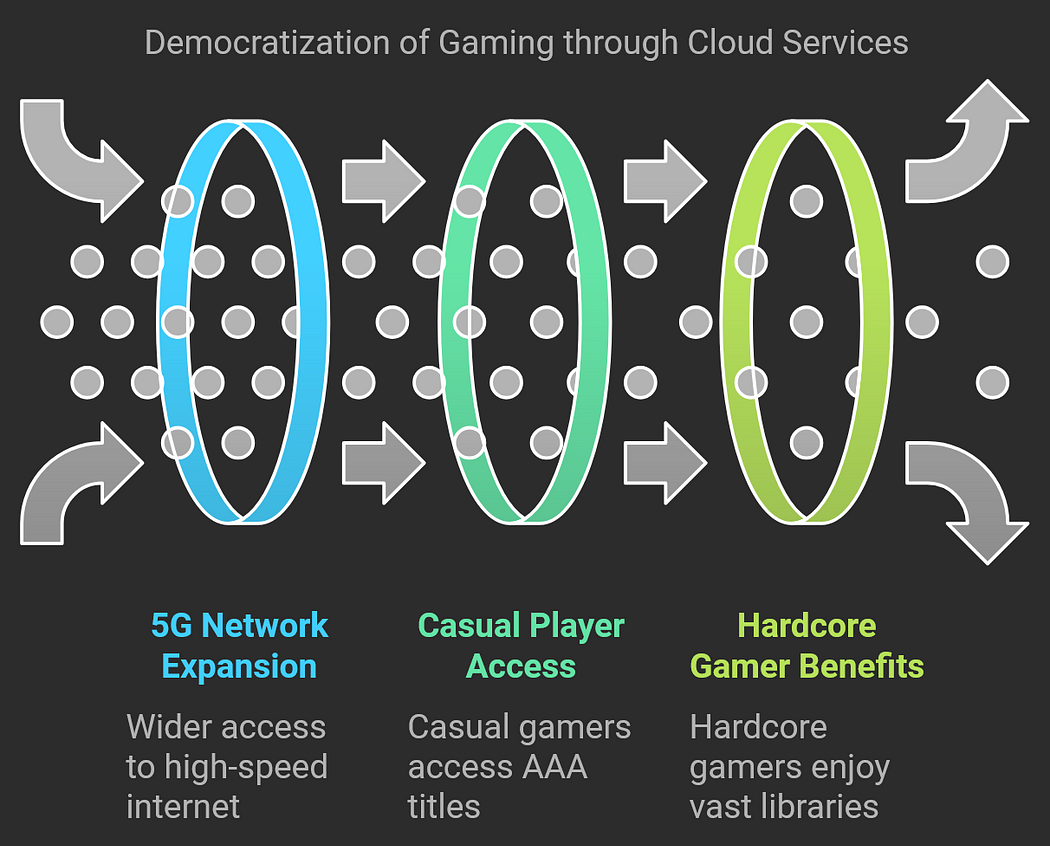
Immersive Tech Creates New Realities
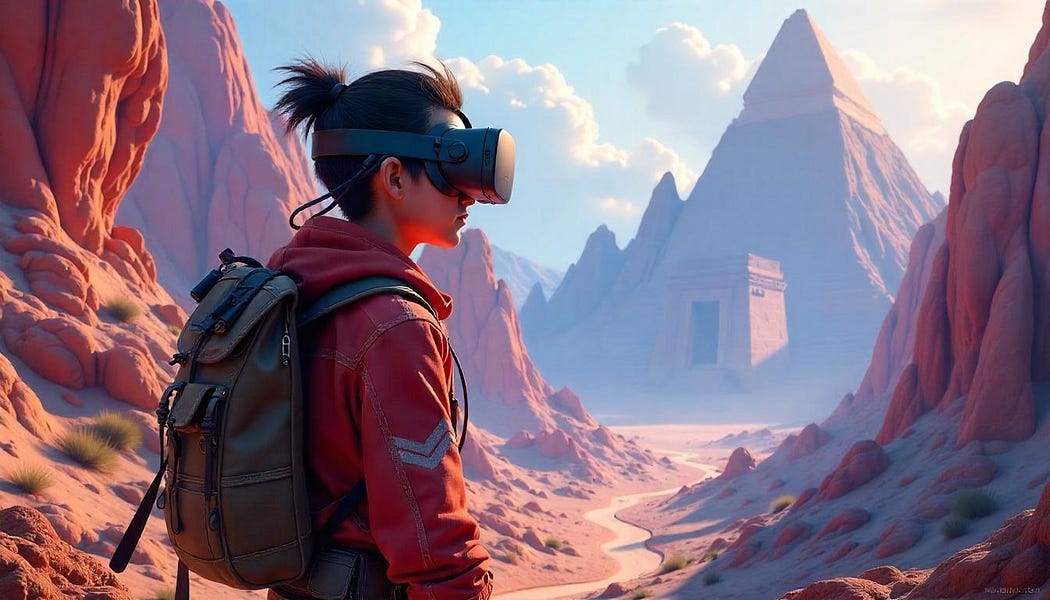
Virtual and augmented reality technologies transport players into incredibly immersive digital worlds. VR headsets become lighter more comfortable and more affordable. AR glasses overlay gaming elements onto physical spaces in compelling ways.
The success of titles like Beat Saber demonstrates VR’s potential while Pokemon GO proved AR’s mass appeal. As hardware improves these technologies will enable entirely new gaming experiences and genres.
Blockchain Enables True Digital Ownership

Blockchain technology revolutionizes in-game economies and digital asset ownership. Players truly own their virtual items through NFTs. New play-to-earn models emerge where gaming achievements translate to real value.
Early blockchain games faced challenges but refined implementations focus on enhancing player experiences rather than speculation.
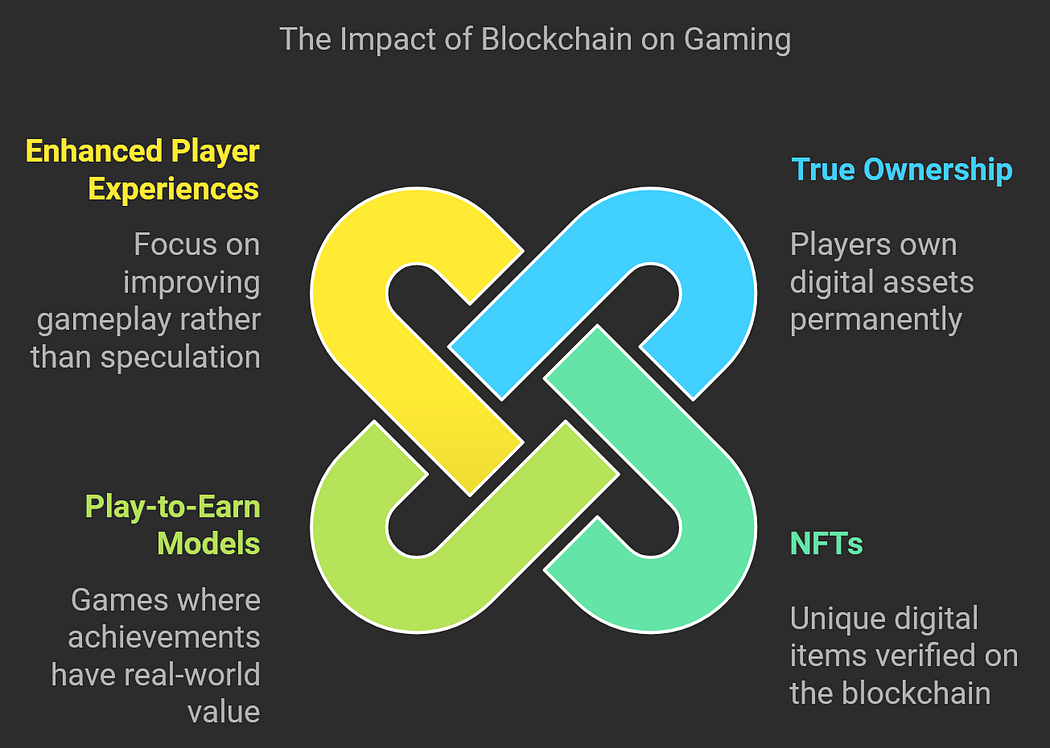
Cross-Platform Play Unites Gaming Communities
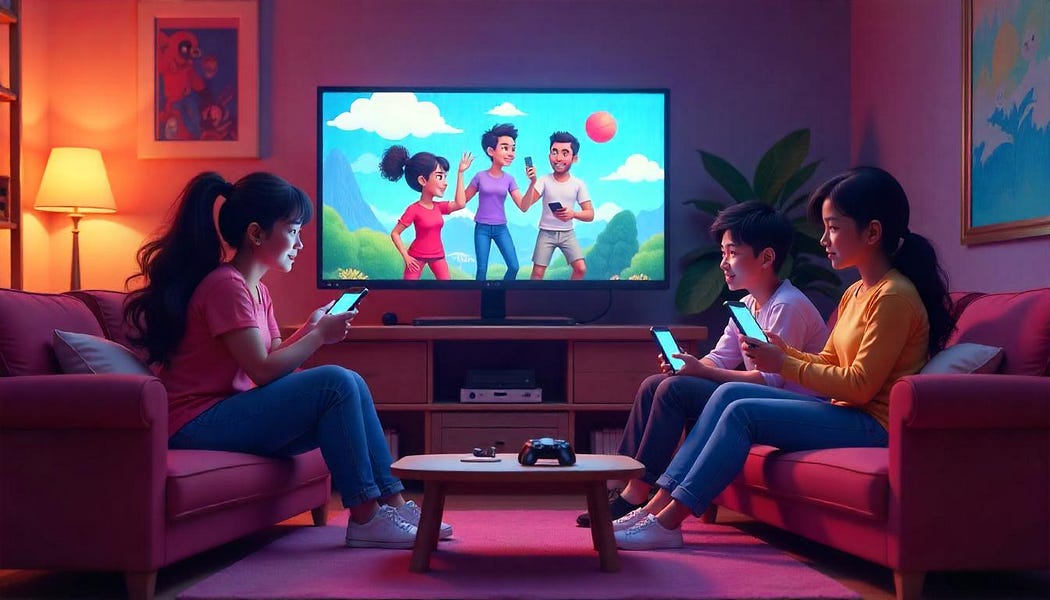
Development tools like Unity and Unreal Engine make cross-platform gaming increasingly viable. Players enjoy their favorite titles across devices while maintaining progress and connecting with friends.
This accessibility drives broader gaming adoption and strengthens online communities. Industry leaders embrace cross-play as the new standard.
Looking Ahead: Gaming’s Bright Future ⭐
The convergence of these technologies promises deeply engaging personalized experiences available to everyone. While challenges around privacy security and ethical AI remain the gaming industry actively addresses these concerns.
The next decade will see gaming evolve from pure entertainment into a primary medium for social interaction creative expression and even education. Players shape this future through their engagement with emerging technologies.
The Technical Revolution Behind The Scenes
Game developers continuously push technical boundaries through innovative approaches. Let’s explore how these emerging technologies transform development processes.
Generative AI Reshapes Development
Traditional game creation demanded extensive manual work. Now AI assists developers by generating assets terrain and even basic code. Small studios leverage these tools to compete with larger companies.
“Our team completed in weeks what previously took months” shares indie developer Sarah Chen. Multiple studies indicate AI-assisted development reduces production time by 40%.
Sustainable Gaming Takes Center Stage 🌱
Environmental concerns drive new approaches to game development and distribution. Cloud solutions reduce electronic waste. Energy-efficient coding practices minimize computational demands.
Major publishers commit to green initiatives while indie developers pioneer eco-friendly game design principles.
Impact on Gaming Communities
Gaming communities have evolved dramatically from simple player groups into complex social ecosystems. Emerging technologies reshape how players interact collaborate and build relationships within virtual spaces. These changes fundamentally alter the social fabric of gaming culture.
Social Gaming Evolution
Multiplayer experiences transform into vibrant social spaces. Virtual concerts festivals and events attract millions of concurrent users. Games become platforms for meaningful connection.
Fortnite’s transformation into a social platform exemplifies this shift toward dynamic virtual communities.
Accessibility Drives Innovation
Adaptive controllers specialized interfaces and AI-powered assistance features make gaming more inclusive. Industry leaders prioritize accessibility ensuring everyone can participate.
Economic Implications
The convergence of new technologies creates unprecedented economic opportunities in gaming. From revolutionary monetization methods to emerging career paths the industry’s financial landscape undergoes dramatic transformation. Understanding these changes becomes crucial for players developers and investors alike.
New Revenue Models Emerge
Subscription services microtransactions and blockchain economies reshape gaming’s financial landscape. Traditional purchase models evolve into service-based approaches.
Cloud gaming subscriptions grow rapidly while NFT marketplaces enable player-driven economies.
Career Opportunities Expand
The gaming industry creates new job categories. AI specialists blockchain developers and VR/AR experts join traditional gaming roles. Remote work options increase global participation.
Challenges and Considerations
While technological advances promise exciting possibilities they also introduce significant challenges. Industry stakeholders must navigate complex issues ranging from data security to player well-being. Addressing these concerns proactively shapes gaming’s sustainable future.
Privacy and Security
Enhanced connectivity raises data protection concerns. Developers implement robust security measures while respecting player privacy. Blockchain technology offers potential solutions through decentralized systems.
Digital Well-being
Gaming companies address screen time addiction and mental health. AI-powered systems monitor player behavior suggesting healthy gaming habits. Virtual reality introduces physical activity requirements.
Educational Gaming Frontiers
Educational gaming emerges as a powerful force for learning and skill development. Modern technologies transform traditional educational approaches through immersive interactive experiences. This fusion of gaming and education opens new possibilities for knowledge transfer.
Gamified Learning
Educational institutions embrace gaming technology for immersive learning experiences. VR simulations teach complex concepts while AI tutors provide personalized instruction.
Studies demonstrate improved retention rates through gamified education.
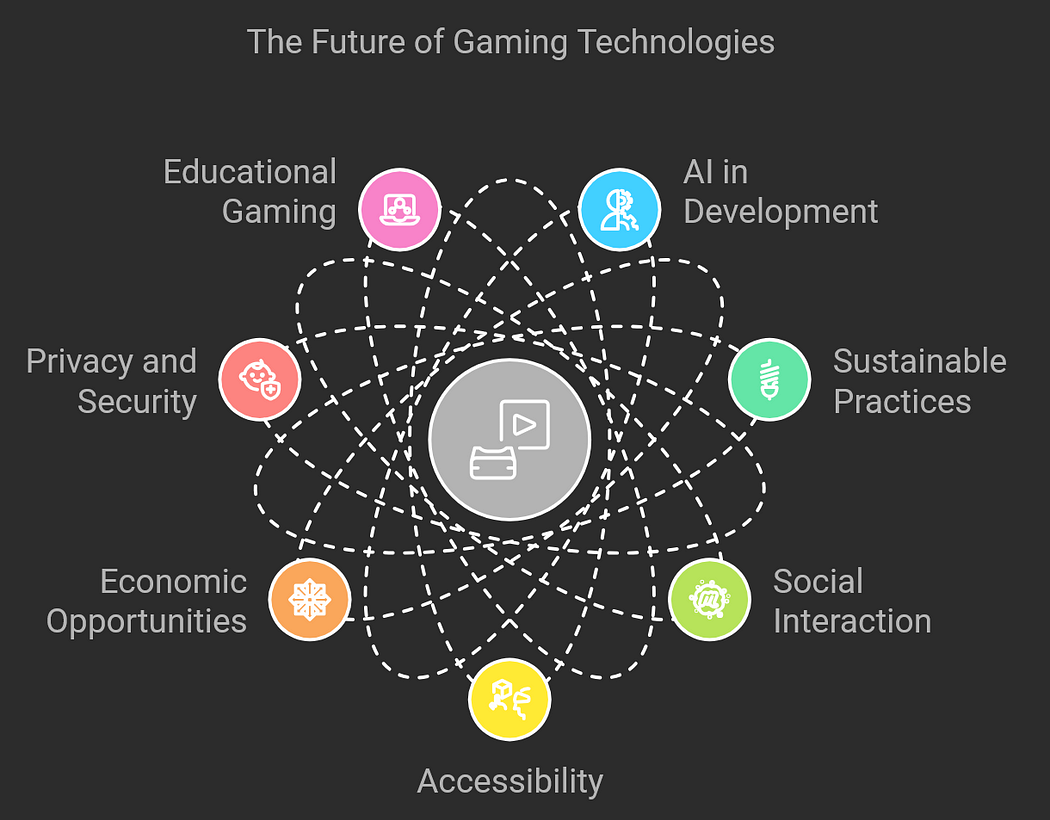
The Road Ahead
As we peer into gaming’s future emerging technologies hint at revolutionary possibilities. From theoretical concepts to practical applications the industry stands ready for unprecedented transformation. These developments promise to reshape not just gaming but entertainment and social interaction as we know them.
Emerging Possibilities
Quantum computing neural interfaces and advanced haptics hint at gaming’s distant future. Research continues into breakthrough technologies that could revolutionize player experiences.
Industry Adaptation
Traditional gaming companies evolve while new players emerge. Partnerships between tech giants and gaming studios accelerate innovation. Independent developers find fresh opportunities.
Related Videos
What GAME ENGINE should you use? 👾 #programming #tech #code #software #gamedev #technology #gaming
5 top technology trends that are changing the gaming industry
The Future of Game Development
Infography
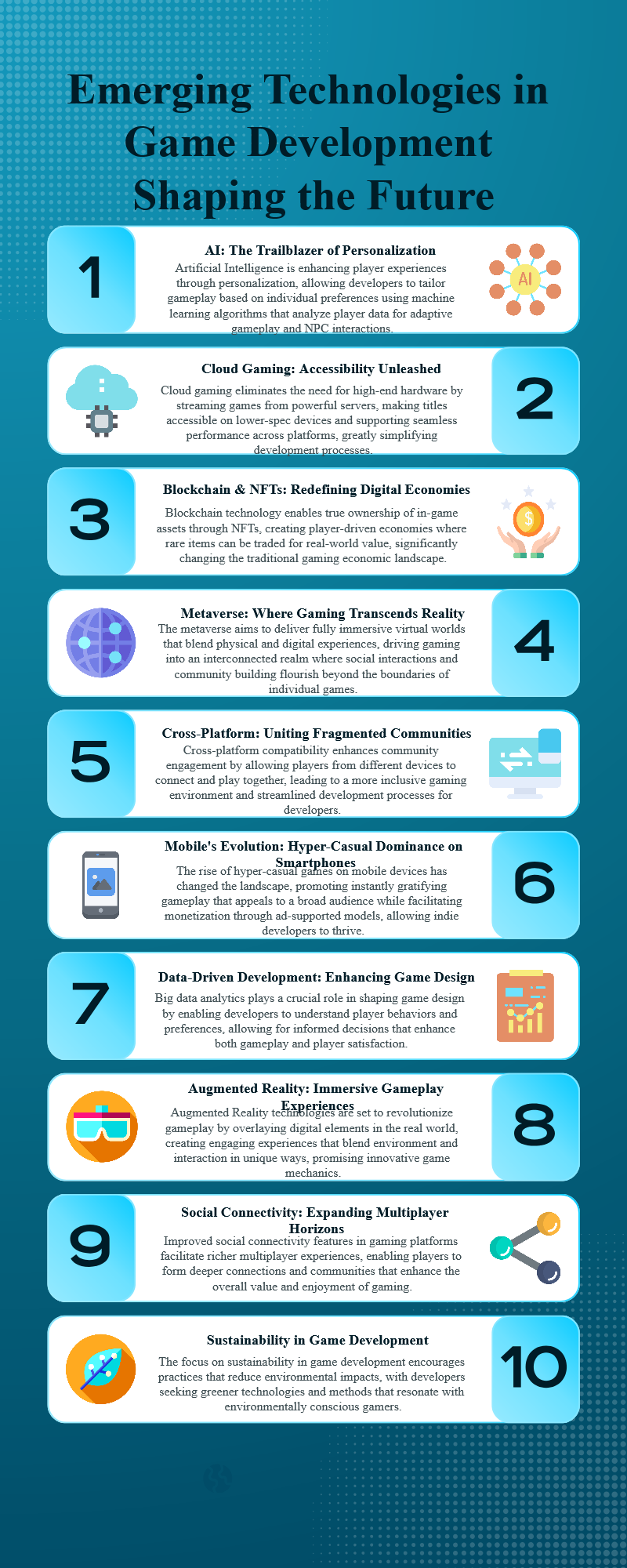
Conclusion: Gaming’s Transformative Decade 🚀
The next ten years promise unprecedented change in gaming. Technological convergence creates experiences previously confined to science fiction. Players gain greater agency while developers access powerful new tools.
Success depends on balancing innovation with responsibility. Privacy security and wellness concerns require careful consideration. Yet gaming’s potential for positive impact grows exponentially.
Whether you’re a developer player or industry observer gaming’s evolution offers exciting possibilities. The technologies reshaping this space will influence entertainment education and social connection for generations.
Key Questions to Consider:
How will AI transform your gaming experience?
What role might blockchain play in your virtual assets?
Which immersive technologies interest you most?
Share your thoughts on gaming’s future in the comments below!
So stay tuned for updates on these futures. And if you found this glimpse beyond the bleeding edge compelling, hit those clap buttons to help spread the word!
If you want to read more interesting content don’t forget to check on my blog.
Subscribe to my newsletter
Read articles from Daniel Parente directly inside your inbox. Subscribe to the newsletter, and don't miss out.
Written by
